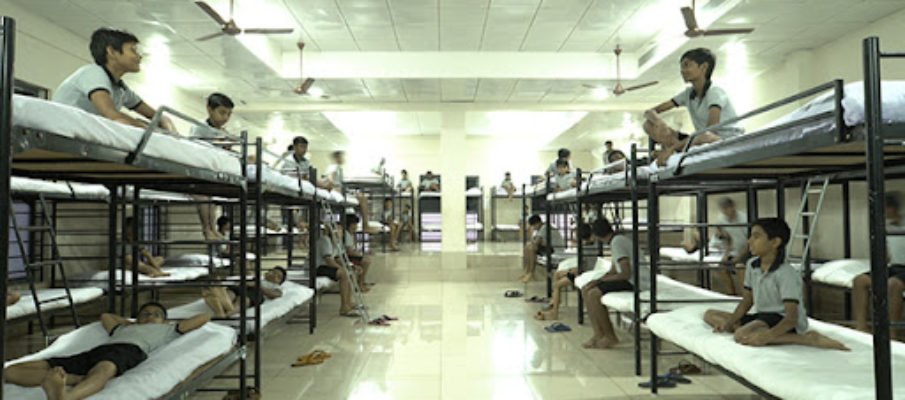Boarding schools are an alternative to homeschooling. They provide a safe and supportive environment where students can learn and grow. Students who attend boarding schools can focus on their studies rather than worry about the distractions of home life, such as chores or family problems.
Boarding schools provide students with a unique opportunity to learn in an atmosphere where they can thrive and develop as individuals. At boarding schools, students are given the space and time they need to study and grow without distractions from home or other responsibilities. Boarding schools also offer an environment where students can become part of a community that cares about them, providing guidance and support as they pursue their goals. Boarding schools provide students with a unique opportunity to learn and grow in a supportive environment. Students can interact with others from different backgrounds, which helps them develop empathy, tolerance, and understanding.
Also Read: Top 10 Boarding Schools in Dehradun
Advantages of Boarding Schools

Boarding schools are a great option for students who have trouble fitting in at their local school. They provide a safe environment where students can thrive and find their passion. Here are some of the advantages of boarding schools:
1. Provides a Good Atmosphere for Learning
A positive atmosphere is created in a boarding school that is conducive to learning. The school’s architecture, facilities and other infrastructure are designed with this in mind. A feeling of security is also created for students since they know that there will always be people around them who can help them if they need anything or if anything goes wrong during their stay at school. This eliminates stress from students’ lives as they learn more effectively when they are relaxed and comfortable with their surroundings.
2. Increases Social Skills
Students who attend boarding schools tend to improve their social skills because they interact with so many different people daily). They learn how to interact with others effectively by playing sports or other group activities that require teamwork and cooperation. This improves their communication skills as well as their ability to work with others under stressful conditions.
3. Boarding School Teaches Responsibility & Independence
In addition to getting away from home, most boarding schools give students responsibilities like chores around the campus or helping with younger students’ needs (like making sure they go to bed at night). These tasks teach responsibility and accountability—important qualities that will serve your child well as he or she grows up and becomes more independent.
Like any other young adult, teens need to practice being on their own to develop the skills needed to live independently as adults.
4. Boarding School Is an Escape From Home
Kids can get sick of their parents’ rules and demands, so it’s nice for them to have a break from the daily grind. And even if they don’t want to escape, there’s no denying that a little distance can be good for family relationships. It gives parents and teens time apart so they can recharge their batteries and reconnect when they come back together again.
5. Enhance their personality
Boarding schools help students develop social skills and strengthen their self-confidence. It also encourages them to be creative and independent thinkers. They offer you an opportunity to grow as an individual, and it also helps you develop into a better person. The environment of boarding schools is usually more relaxed than in public schools, which means that students are allowed to be themselves and express themselves freely.
Furthermore, at boarding schools, you get to meet people from different backgrounds and cultures. This helps you broaden your perspective about the world around you and learn how to interact with others who don’t necessarily share the same beliefs as you do.
Disadvantages of Boarding Schools

Boarding schools are becoming increasingly popular for both parents and students. While the advantages of boarding schools are numerous, there are also some disadvantages that parents should be aware of before making this decision.
1. You will receive less communication from your child
No question staying in touch with your child is one of the most important aspects of parenting. However, many parents worry about how many contacts they will have with their children when they go away to boarding school. If you are worried about this, you can ask your child’s teacher or counsellor what type of communication they recommend between parent and child. Parents can also use technology such as Skype calls or email to keep in touch with their children while they are away at school. Just make sure that you do not overwhelm your child with emails or phone calls!
2. It can be difficult to transition into a new environment
Transitioning into a new environment can be difficult for anyone, especially when it comes to boarding schools where students are living away from home for an extended period. While some students may thrive off of being independent and having more freedom than they did at home, others may need more help adjusting to their surroundings than what is provided by teachers and counsellors.
3. Boarding School Costs
The biggest disadvantage of sending your child to a boarding school is the cost associated with it. Boarding schools cost high fees per year depending on the location and type of program offered by the school. While these costs might seem steep at first glance, they typically break down into monthly payments that are much more manageable than paying tuition all at once at the beginning of the year or semester. But keep in mind that some boarding schools do require payment before your child even arrives on campus so make sure you have enough money set aside before making any decisions about which school is right for your family.
4. Increases risk of depression and suicide
In some cases, boarding schools can increase the risk of depression and suicide among their students. In many cases, this is because the students are away from their families for extended periods and don’t have access to the resources they need to get through difficult times in life. The lack of support can increase feelings of isolation and loneliness that can lead to depression.
5. Limits social interaction
Another disadvantage of boarding schools is that students may not have as much opportunity for social interaction as they would if they were in a traditional school setting. While there are some benefits associated with this — such as having less distraction so you can focus on your studies — it means that students may end up feeling less connected to others around them because they only interact with each other once or twice a week during free time or sporting events or extracurricular activities.
Conclusion

I do certainly believe that boarding schools are worthwhile for a subset of students with certain needs, but I also believe that homeschooling can benefit the vast majority of students. It’s difficult to make a general recommendation for everyone. If you’re unsure about which type of school is best for your child, take some time to look into both options. I also highly recommend speaking with a family counsellor (a free resource from the school system to help families open up discussions) and doing in-person research on each type of school before making any decisions.
For any queries related to parenting, schooling, or any student-related tips, click here to check out our latest blogs.









